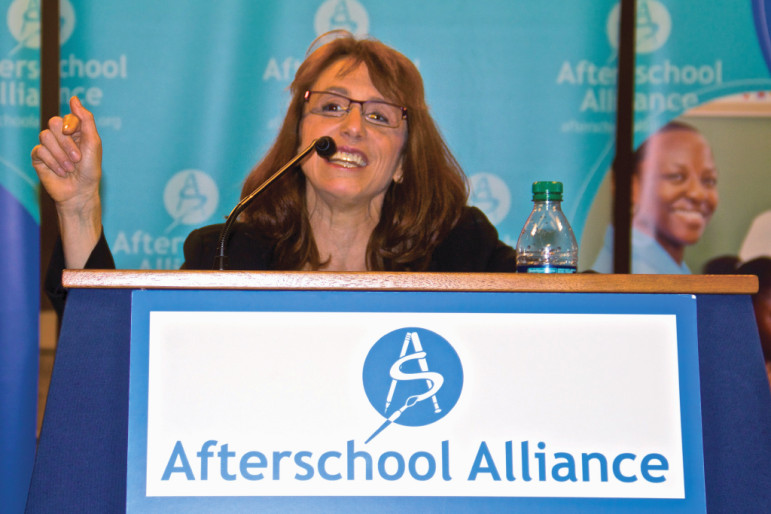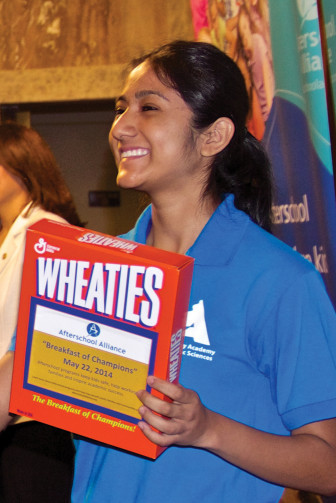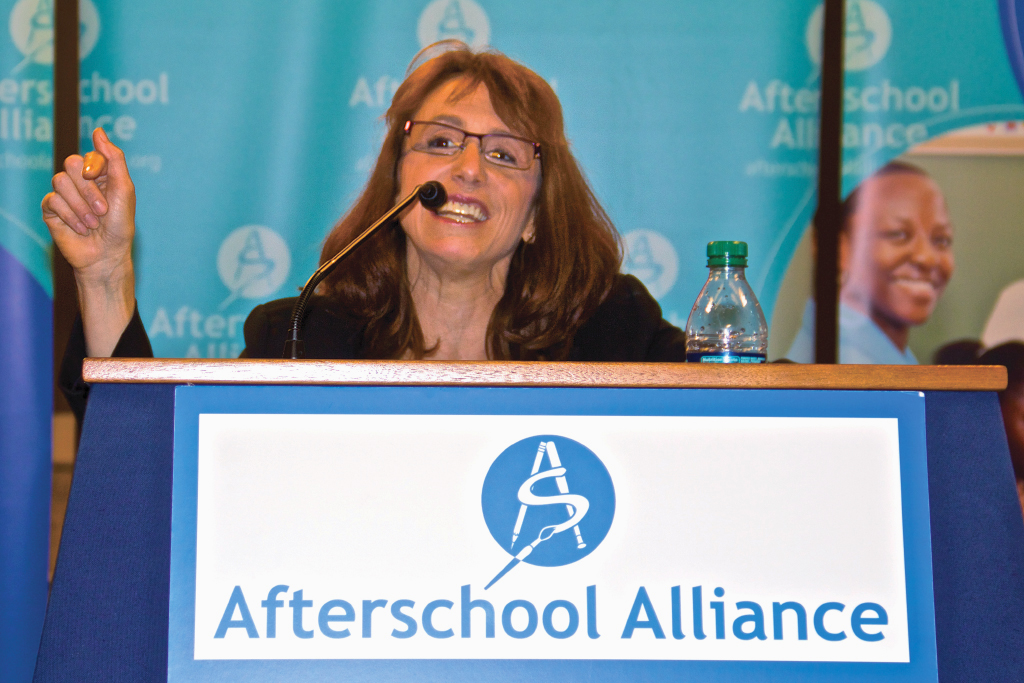
Wes Bruer
Afterschool Alliance Director Jodi Grant greets the crowd of elected officials and advocates gathered at the Capitol to highlight the importance of after-school programs.
WASHINGTON — Deborah Lowe Vandell, founding dean of the School of Education at the University of California-Irvine, has been named National Afterschool Champion by the Afterschool Alliance for her research on the effectiveness of out-of-school time (OST) programs.
Jodi Grant, executive director of the Afterschool Alliance, said in a news release that Vandell’s “contribution to quality after-school programming is enormous and unmatched.”

Wes Bruer
Honorees at the Afterschool Alliance’s Breakfast of Champions receive special Wheaties boxes such as this one for Rep. Dan Kildee (MI) who was recognized as a State Champion at the Afterschool for All Challenge.
Vandell has written more than 30 papers and articles reviewing the academic and social benefits associated with participation in OST programs, Grant said.
“Deborah Lowe Vandell was one of the first researchers to assess after-school programs, presenting findings to her peers on after-school choices for more than 20 years,” Grant said. “She is a preeminent researcher on after-school programs and outcomes, and her work has informed program and policy development at the national, state and local levels.”
Also at the May 22 Afterschool Alliance annual lobbying day on Capitol Hill, the Washington-based nonprofit and New York-based MetLife Foundation announced five after-school programs that won 2014 MetLife Afterschool Innovator Awards, each of which comes with a $10,000 prize to support the programs.
This year, the awards focused on middle school programs.
The 2014 winners:
- The Baltimore Urban Debate League has more than 300 students from 17 public schools, serving primarily low-income families. The program claims to improve academic achievement and graduation rates while raising students’ self-esteem.
- Thriving Minds After-School program at Thomas C. Marsh Middle School in Dallas, run by the nonprofit Big Thought, serves 128 students, 13 of whom participate in the program’s Explorer Reading Club, designed for students with special needs.
- AS220 Youth, which started in 1985 as an “artists’ space” in Providence, R.I., is a free arts-education program for young people offered in three locations: a downtown Rhode Island studio; the Rhode Island Training School, a juvenile detention facility; and the Urban Collaborative Accelerated Program, an alternative middle school for youths at risk of dropping out.
- Hope Street Family Center’s youth center — the only after-school program in its Los Angeles community that serves middle-school students — offers a broad array of educational, recreational, health and social services to students and their families. Students receive homework assistance, academic support in math, reading and writing, and one-on-one tutoring.
- BUILD (Broader Urban Involvement & Leadership Development), which began as a gang-intervention program in one Chicago neighborhood in 1969, now serves more than 3,000 youths year-round in 11 communities across the city. BUILD strives to prevent young people from joining gangs and works with gang-involved youth to develop alternatives to gang affiliation.






























